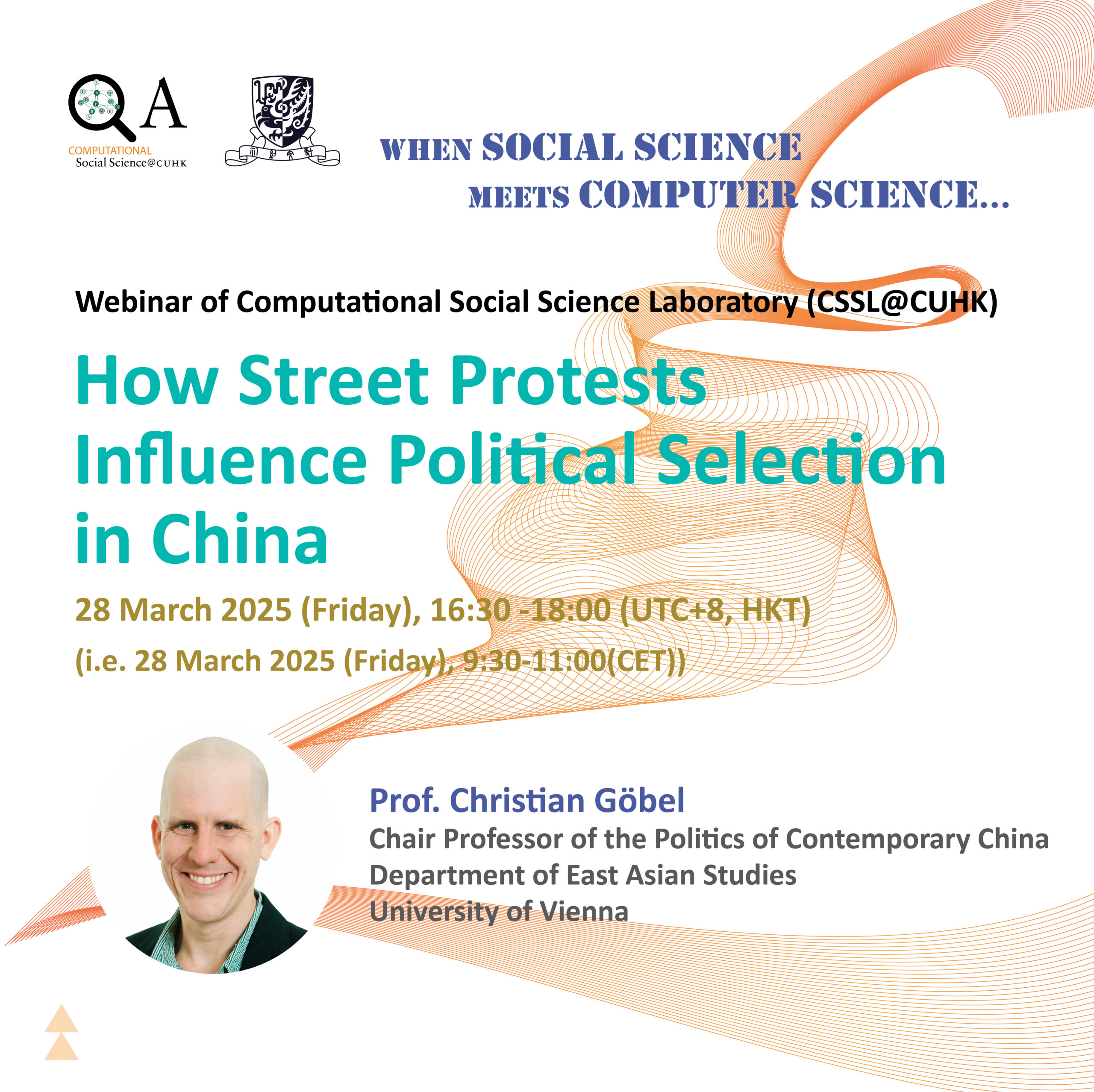
csspfs@cuhk.edu.hk
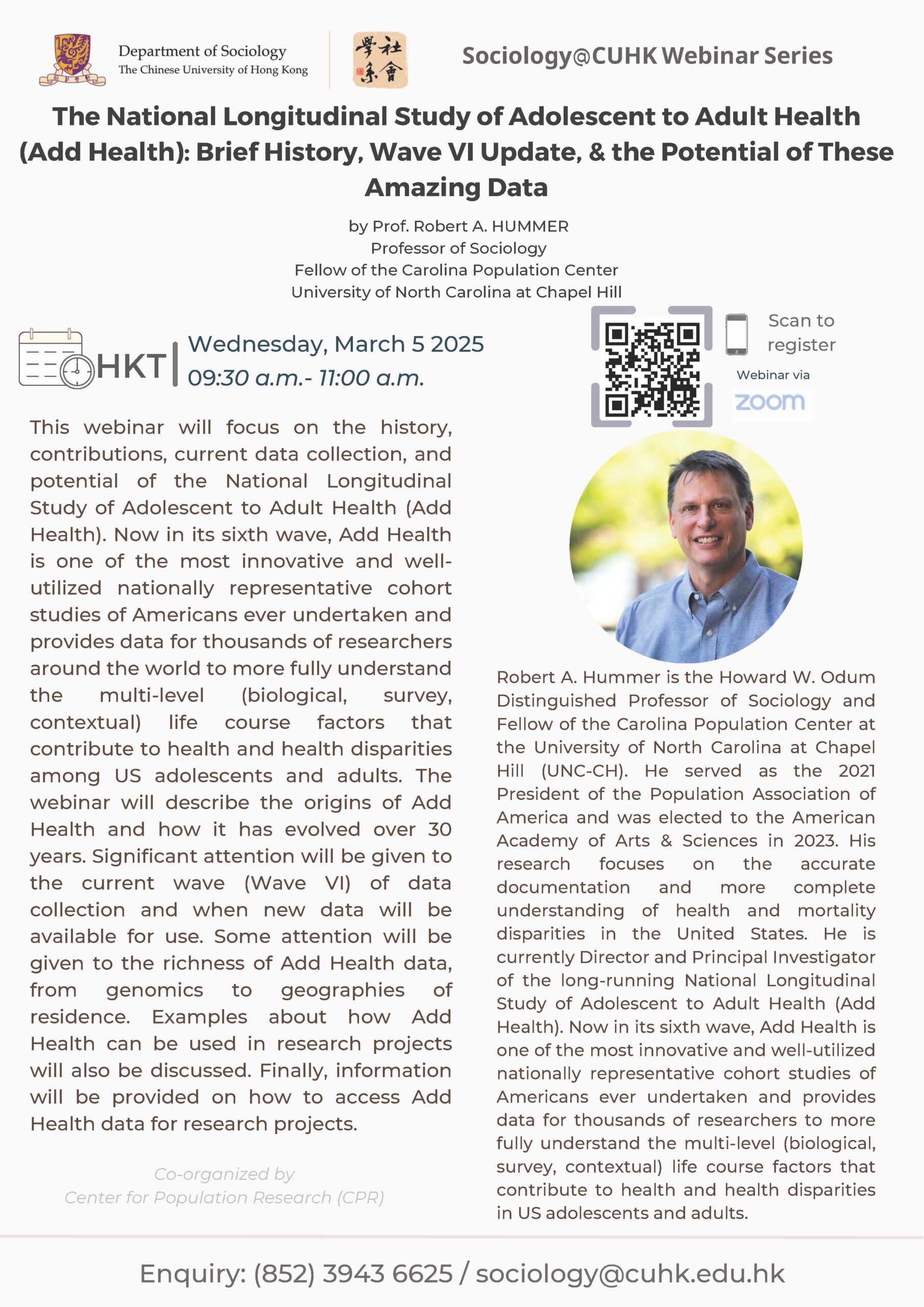
sociology@cuhk.edu.hk
If you are interested to join the webinar, please register in advance to receive the Zoom meeting details via email.
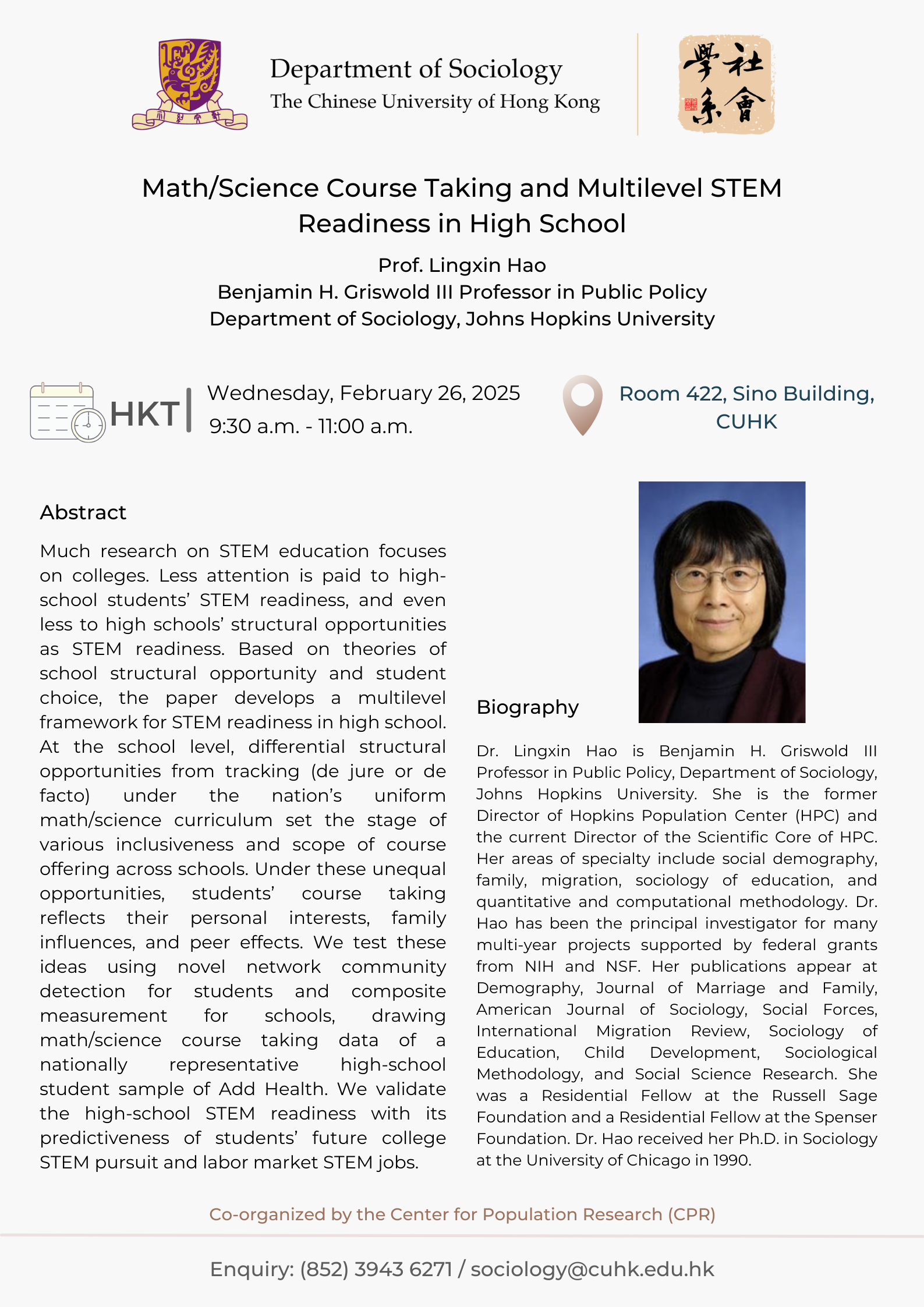
Benjamin H. Griswold III Professor in Public Policy,
Department of Sociology, Johns Hopkins University
Abstract:Much research on STEM education focuses on colleges. Less attention is paid to high-school students’ STEM readiness, and even less to high schools’ structural opportunities as STEM readiness. Based on theories of school structural opportunity and student choice, the paper develops a multilevel framework for STEM readiness in high school. At the school level, differential structural opportunities from tracking (de jure or de facto) under the nation’s uniform math/science curriculum set the stage of various inclusiveness and scope of course offering across schools. Under these unequal opportunities, students’ course taking reflects their personal interests, family influences, and peer effects. We test these ideas using novel network community detection for students and composite measurement for schools, drawing math/science course taking data of a nationally representative high-school student sample of Add Health. We validate the high-school STEM readiness with its predictiveness of students’ future college STEM pursuit and labor market STEM jobs.
Bio: Dr. Lingxin Hao is Benjamin H. Griswold III Professor in Public Policy, Department of Sociology, Johns Hopkins University. She is the former Director of Hopkins Population Center (HPC) and the current Director of the Scientific Core of HPC. Her areas of specialty include social demography, family, migration, sociology of education, and quantitative and computational methodology. Dr. Hao has been the principal investigator for many multi-year projects supported by federal grants from NIH and NSF. Her publications appear at Demography, Journal of Marriage and Family, American Journal of Sociology, Social Forces, International Migration Review, Sociology of Education, Child Development, Sociological Methodology, and Social Science Research. She was a Residential Fellow at the Russell Sage Foundation and a Residential Fellow at the Spenser Foundation. Dr. Hao received her Ph.D. in Sociology at the University of Chicago in 1990.
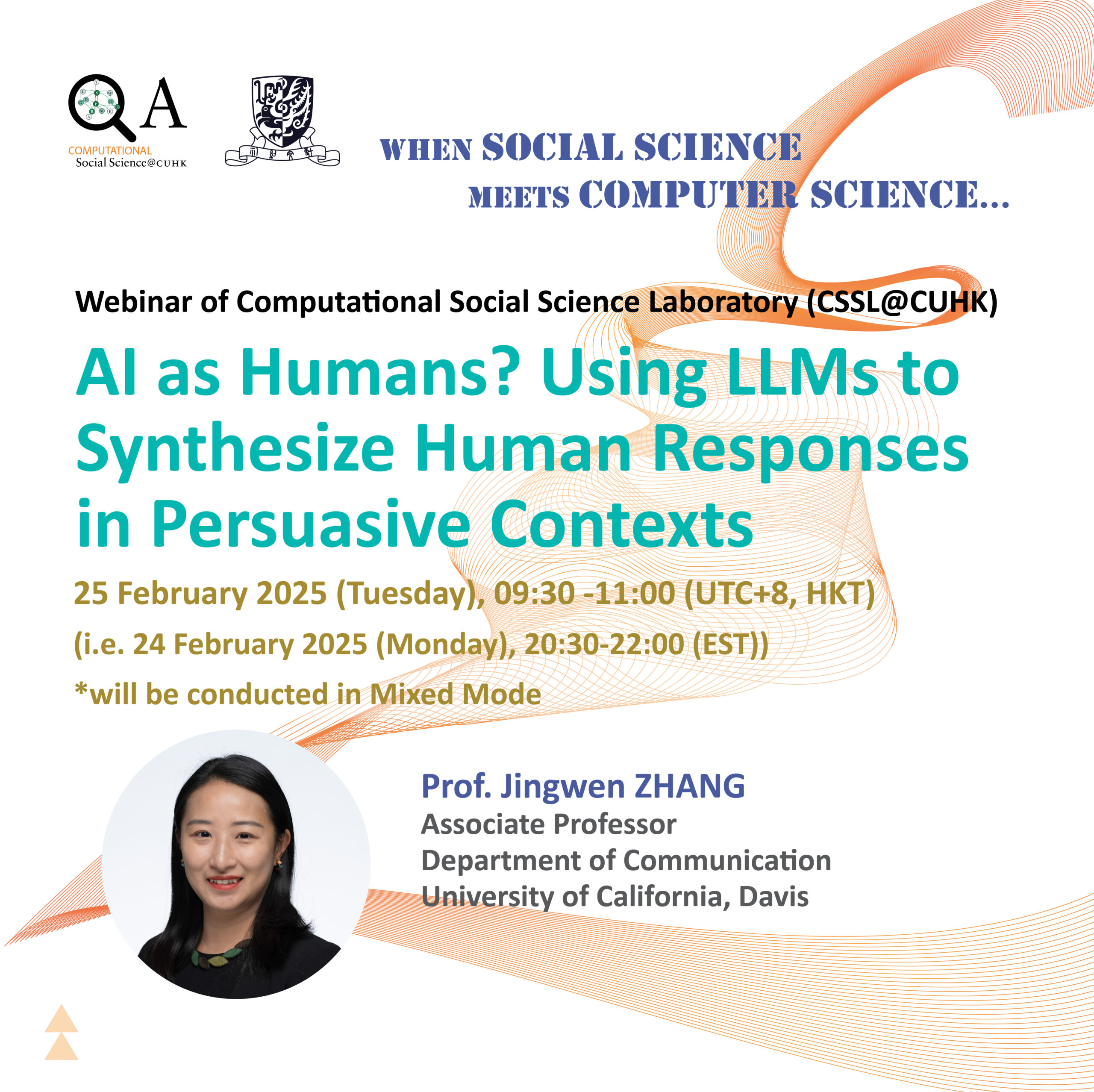
csspfs@cuhk.edu.hk
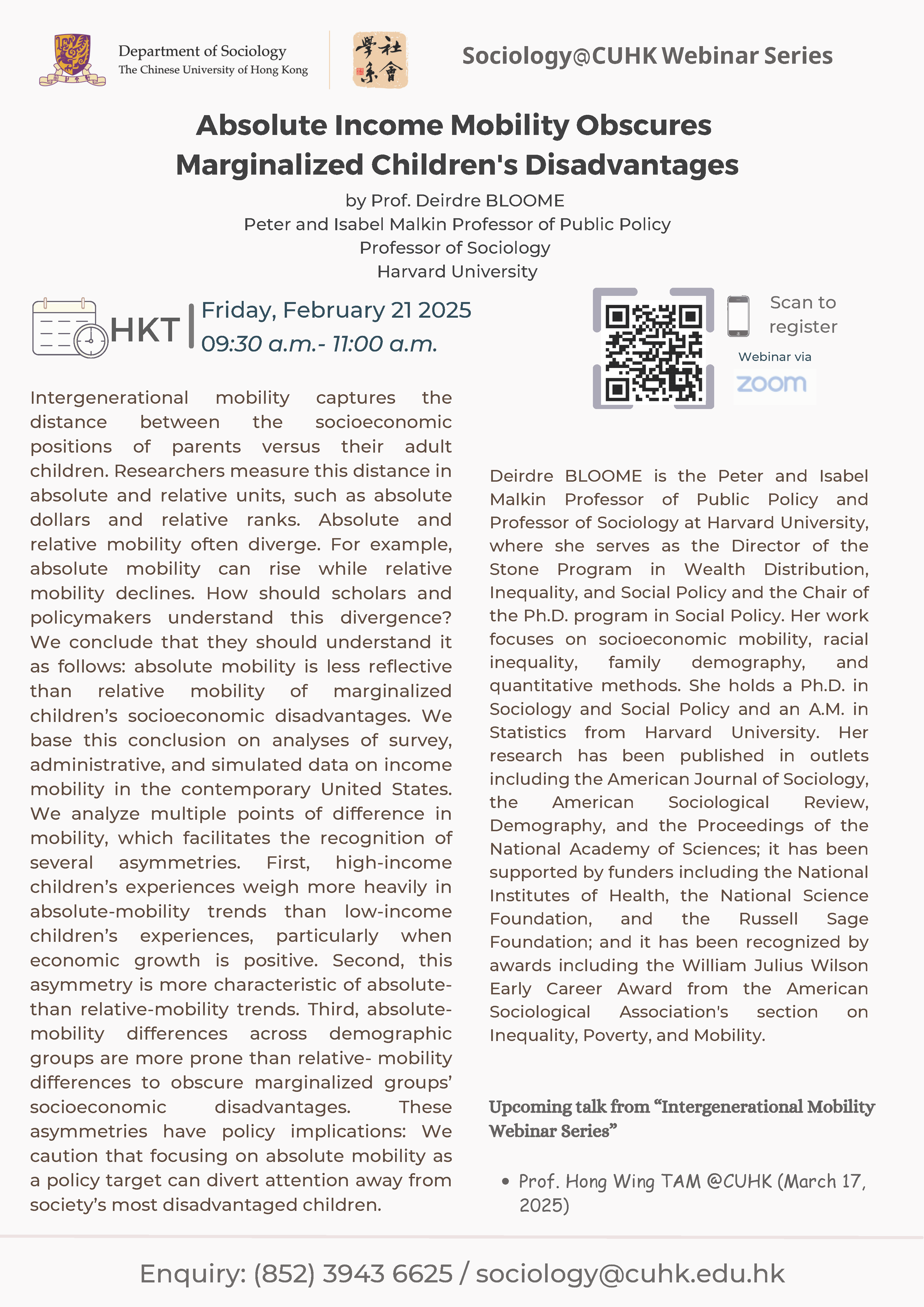
sociology@cuhk.edu.hk
If you are interested to join the webinar, please register in advance to receive the Zoom meeting details via email.
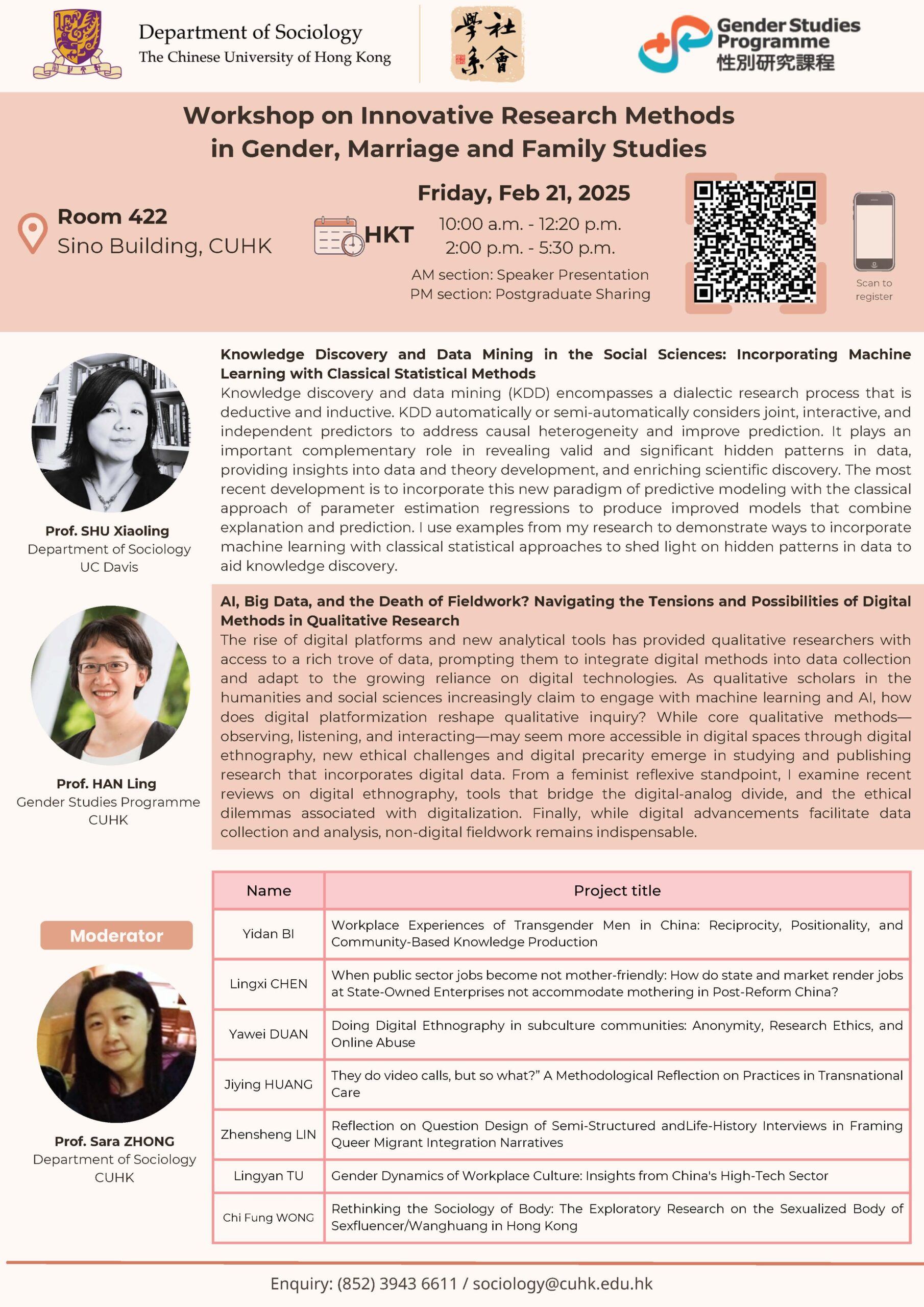
sociology@cuhk.edu.hk
The Department of Sociology is pleased to announce an upcoming workshop with the details below:
| Title: | Workshop: Innovative Research Methods in Gender, Marriage and Family Studies (Co-organized by the Department of Sociology and the Gender Studies Programme) |
| Date: | 21 February 2025 (Friday) |
| Time: | 10:30 a.m. – 12:45 p.m. & 2:00 p.m. – 5:30 p.m. (UTC+8, HKT) |
| Venue: | Rm 422, 4/F, Sino Building, CUHK |
| Speakers: | Professor Xiaoling SHU (Professor, Department of Sociology, University of California, Davis) Professor Ling HAN (Assistant Professor, Gender Studies Programme, CUHK) Research Postgraduate Students (Yidan BI, Lingxi CHEN, Yawei DUAN, Jiying HUANG, Zhensheng LIN, Lingyan TU and Chi Fung WONG) |
| Moderator: | Professor Sara ZHONG (Associate Professor, Department of Sociology, CUHK) |
| Format: | On-site participation only |
| Registration: | https://cloud.itsc.cuhk.edu.hk/webform/view.php?id=13704415 Registration Deadline: 2 pm, 19 Feb 2025 (Wed) |
For further information, kindly refer to the poster and rundown.

